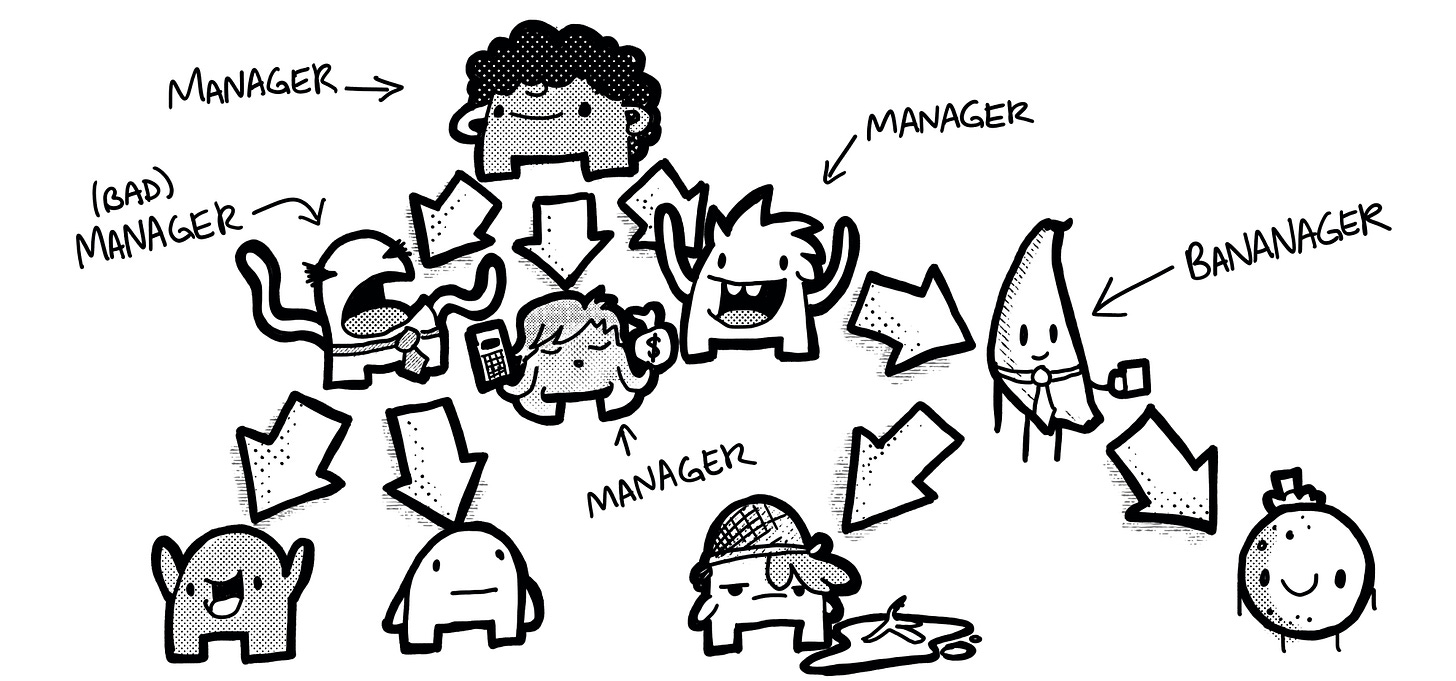12. Manager (definition)
NOTE: if you’re new to Ground-Up Governance, or are finding anything a bit strange or confusing, you might want to START HERE.
Because life is unfair, almost every employee is accountable to some other employee, who in turn has authority. We already used an example of a boss: remember Mr. Bananaman? A boss is basically a type of employee who’s responsible for the performance of other employees. We usually call those people “managers” because they manage people – by giving them stuff to do and helping them to be successful at doing those things.
Some managers are responsible for the performance of entire projects, like finding a way to sell a whole warehouse full of factory seconds Reallie Steilish Hats hats with minor defects. If it were your job to manage that project, you’d have to figure out how many people you need to hire, where you are going to find customers, how you’ll help customers to understand that the defects actually make the hats *more* collectible, and how you are going to spend as little money as possible to achieve your goals (which might include making money, helping your community, meeting Billie Eilish, or almost anything, really). Your project might get so big and complex that you need to make some of your employees into managers so they can manage THEIR employees. Similarly, you’re probably reporting to some other manager, who’s responsible for your project, and ten other warehouses full of slightly janky Reallie Steilish headwear.
It probably sounds like an endless spiral of bureaucracy, but it’s not as bad as it sounds. Eventually we’ll learn about the managers at the top of the heap.


